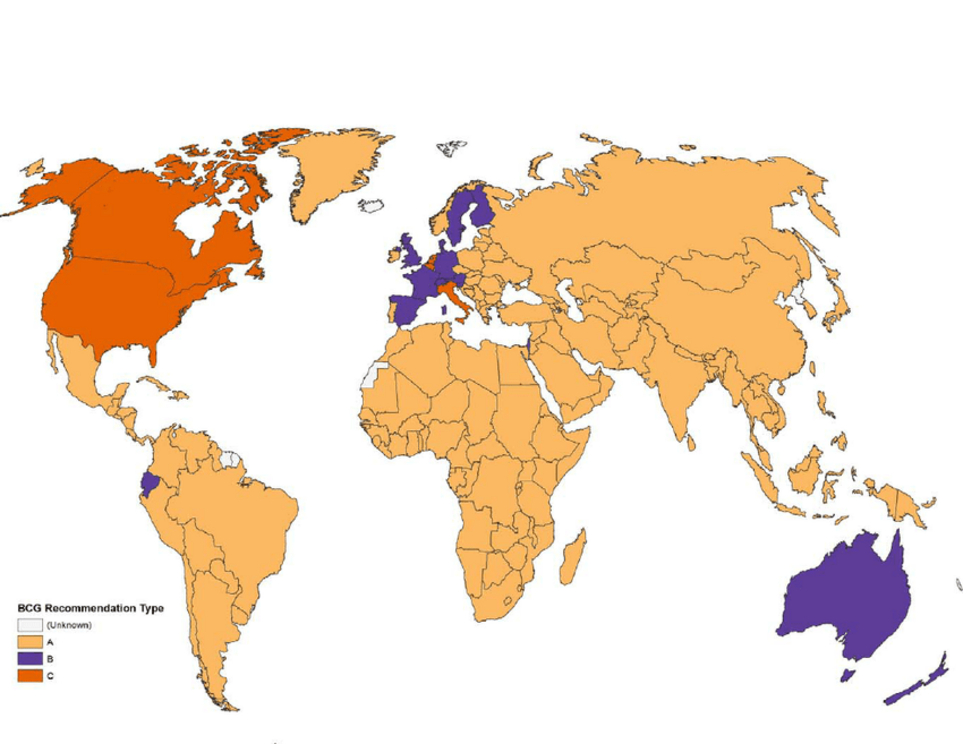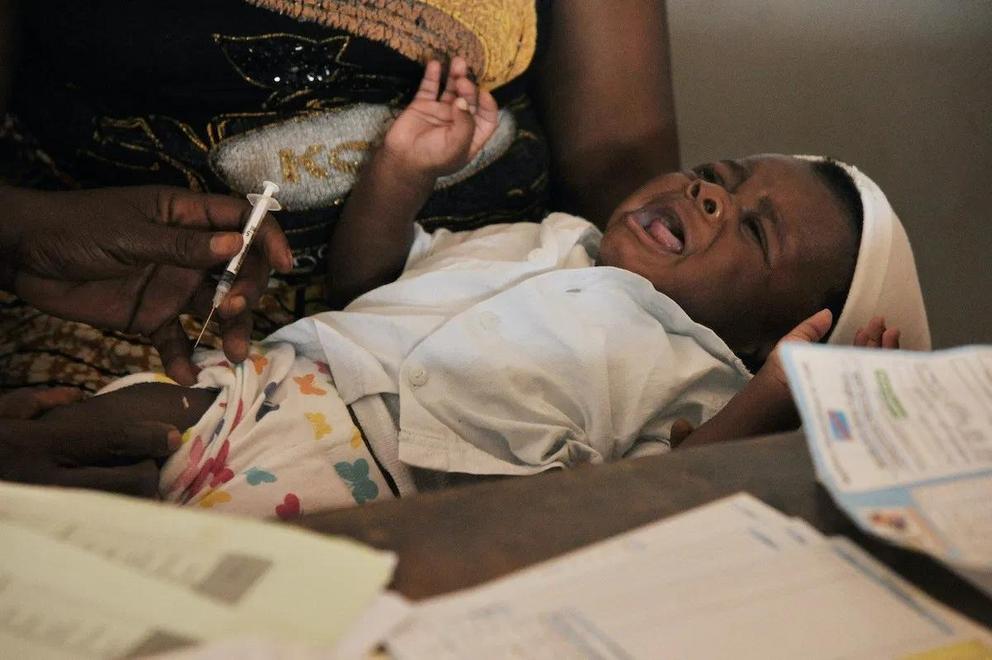Covid-19 - Tuberculosis link?
Editor's note: checkout the latest issue of Nexus Magazine for more on the TB Covid-19 link.
This may explain the differences among countries' infection and death rates
The map below from the medical journal Plos Medicine displays BCG vaccination policy by country. Bacillus Calmette-Guérin vaccine is a vaccine primarily used against tuberculosis. Yellow: The country now has a universal BCG vaccination program. Blue: The country used to recommend BCG vaccination for everyone, but now does not. Red: The country never had a universal BCG vaccination program.

One of my Facebook friends posted that he had pondered this map, turned to his Japanese wife and asked: “Say, did you ever get a vaccine called BCG?”
“Yes, of course,” she replied. “Everyone in Japan gets that.”
My friend, who wishes not to be named in this article, wonders if we aren’t getting close to a partial answer to the question why Japan hasn’t been hit very hard – yet, at least – even though the country has done little testing and has not decreed a major lockdown.
A theory has emerged that administering or not administering BCG – a century-old tuberculosis vaccine usually given to newborns – may help explain some of the wildly differing infection and death counts among countries.
Although tuberculosis is a bacterial disease, there are indications that BCG may help the immune system fight off viral infections as well. The map can only encourage researchers, who are off and running.
Look at Italy, which is red. BCG vaccinations have not been customary there.
Germany (blue) and the Netherlands (red), are adjoining countries whose Covid-19 death rates have been quite different. Spain (blue) and Portugal (yellow), likewise.
India and Russia, huge countries experiencing remarkably low rates of infection so far, are yellow.
“Yes,” my friend observes, “Iran is yellow – and it’s been hit very hard by the pandemic – but BCG vaccinations started there in 1984, which wouldn’t have been in time to protect the elderly Iranians who have succumbed to the disease.”
He adds: “There are interesting possible explanations for China as well. Without having any hard evidence, I’d hazard the following: The country (in addition to being dirt poor) was in a state of war, civil war and chaos during the ’40s, when its now-70-somethings were born. Were they vaccinated? No idea, but I’d be surprised if a high percentage were. Then there was the Great Leap Forward, when millions starved, and the Cultural Revolution – both periods of time when I doubt universal vaccination was a high priority. But who knows?”
One commenter says the map might suggest a coming improvement in the image of the illegal US immigrants from south of the border who so upset Donald Trump. “Latin American immigrants to the US would likely have had the BCG vaccination – if the poor get these shots – and might show lower rates of infection.”
The friend who started all this with his post emphasizes that “evidence about BCG is still preliminary, scanty, untested, etc. Correlation does not equal causation, and these country comparisons may all be one huge coincidence. Japan may turn out to be a fool’s paradise, on the verge of following Italy into Covid-19 hell.
“The most persuasive explanation for Japan’s good outcome may be sheer dumb luck.”
Another Facebook friend retorts: “Dumb luck seems inappropriate. Rather, history should tell us why some countries decided to stop using BCG and others never used it. Guessing from the map, a few advanced countries may have thought they were beyond needing it, while the rest of the world remembered the fearful past.”
Fair enough. And if the hopeful theory pans out it may help put to rest the anti-vaccination movement that has taken hold in the United States and elsewhere. Unintended consequences and all that.
We’ll see.


